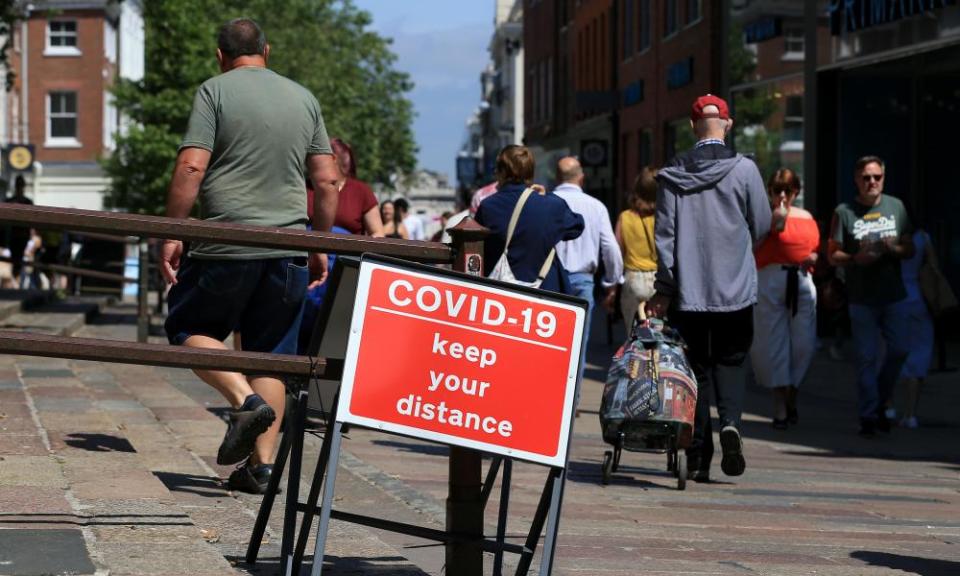Covid-19 crisis risks UK 'lost generation' of people about to retire

The coronavirus crisis could leave the next generation of retirees significantly poorer and sicker, according to research commissioned by the Centre for Ageing Better.
The research, carried out by Ipsos Mori, found that the pandemic risks creating a “lost generation” of older people entering retirement in poor health and without enough money to support themselves in retirement.
Almost half of people in their 50s and 60s believe their financial circumstances will worsen over the next year, and many report that their physical and mental health has deteriorated during lockdown, according to the research.
“These figures are deeply worrying. If this generation continues to be an afterthought in the coronavirus recovery, we will see a lost generation entering retirement in poorer health and worse financial circumstances than those before them,” said Anna Dixon, the chief executive at the Centre for Ageing Better.
People over 60 or with health issues should wear a medical-grade mask when they are out and cannot socially distance, according to new guidance from the World Health Organization, while all others should wear a three-layer fabric mask.
The WHO guidance, announced on 5 June, is a result of research commissioned by the organisation. It is still unknown whether the wearers of masks are protected, say its experts, but the new design it advocates does give protection to other people if properly used.
The WHO says masks should be made of three layers – with cotton closest to the face, followed by a polypropylene layer and then a synthetic layer that is fluid-resistant. These are no substitute for physical distancing and hand hygiene, it says, but should be worn in situations where distancing is difficult, such as on public transport and at mass demonstrations.
The WHO has been reluctant to commit to recommending face coverings, firstly because the evidence on whether they offer any protection to the public is limited and – more importantly – because it was afraid it would lead to shortages of medical-grade masks for health workers.
Sarah Boseley Health editor
The analysis shows that a fifth of people in their 50s and 60s have experienced deteriorating physical health during the lockdown period. More than a third say their mental health has worsened.
More than half have had a medical or dental appointment delayed or cancelled, prompting fears that untreated conditions could set back the health of this generation irreparably. Almost 40% of this age group admit to drinking more alcohol and smoking more during lockdown.
The figures also raise concerns that the impact of lockdown could seriously damage this generation’s financial future. Almost half believe that their personal finances will worsen over the next year. Only 39% of those who are currently furloughed, or of working age but not in employment, are confident that they will be employed in the future.
default
The Centre for Ageing Better is calling for tailored job-seekers support for the over-50s, and a commitment from the government to improving the nation’s health. This, they say, will be essential to protect the financial wellbeing of this age group, who struggle more than any other group to get back into work, and will contribute to the UK’s economic recovery.
“We know that the over-50s already face serious disadvantages in the workforce, are more likely to be made redundant and struggle more than any other group to get back into work once they have fallen out. And yet this group are being ignored when it comes to proposed actions to support the recovery,” added Dixon, author of The Age of Ageing Better?
“At the same time, it’s clear that this group also face serious risks to their health. More than one in five have seen their health deteriorate during lockdown,” she said. “We need to see much stronger action to improve the health of the population and tackle the causes of preventable illness and disability, especially in poorer areas.
Ben Page, the chief executive at Ipsos Mori, said: “This new survey shows how older people have suffered during the Covid-19 crisis – and are likely to suffer afterwards as older workers may – as in 2008 – be more likely to be laid off in the looming recession, and find it harder to get new jobs. It is not just new entrants to the jobs market who will suffer, but also older workers.”
Caroline Abrahams, the charity director at Age UK, said: “We know that lockdown has damaged many older people’s physical and mental health. Many older people are also struggling financially and we have heard from a number of furloughed older workers who are really worried that if they lose their job they will find it impossible to get another one again.”

 Yahoo News
Yahoo News 